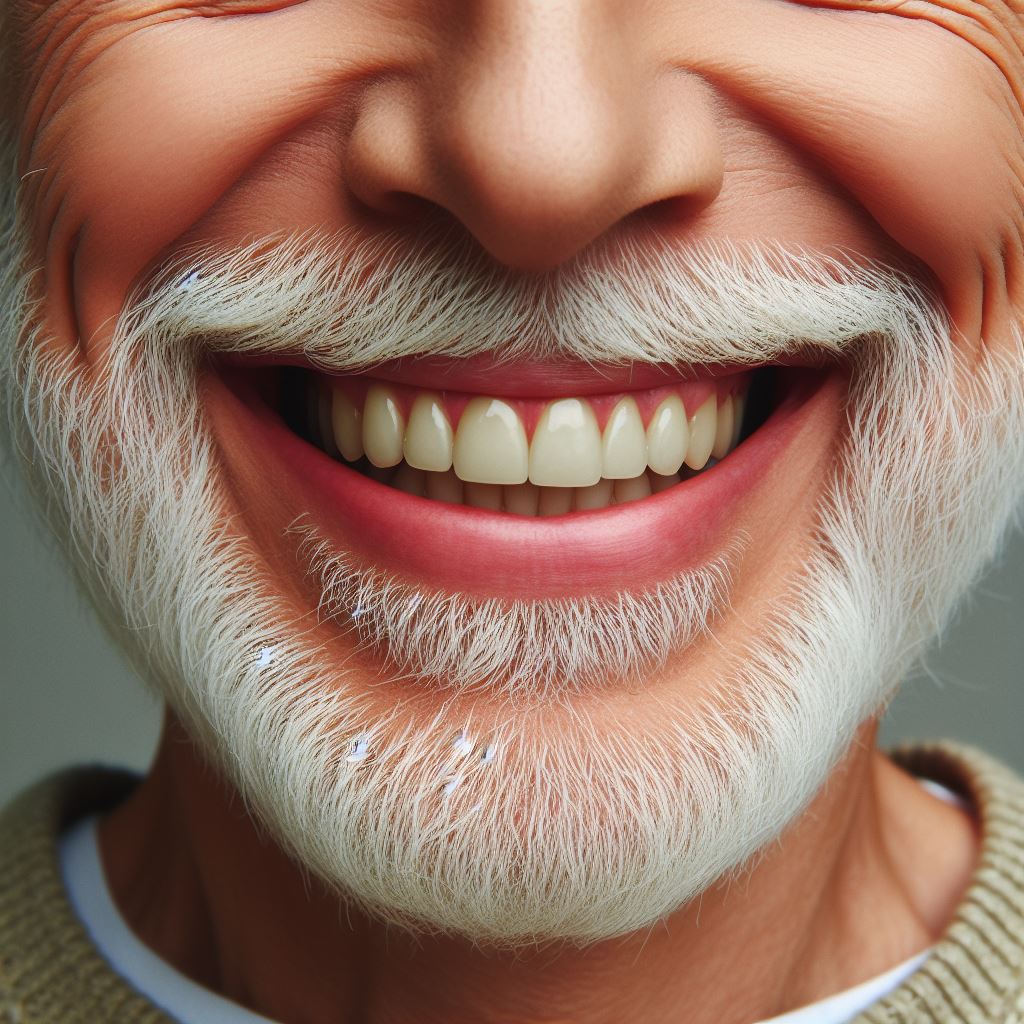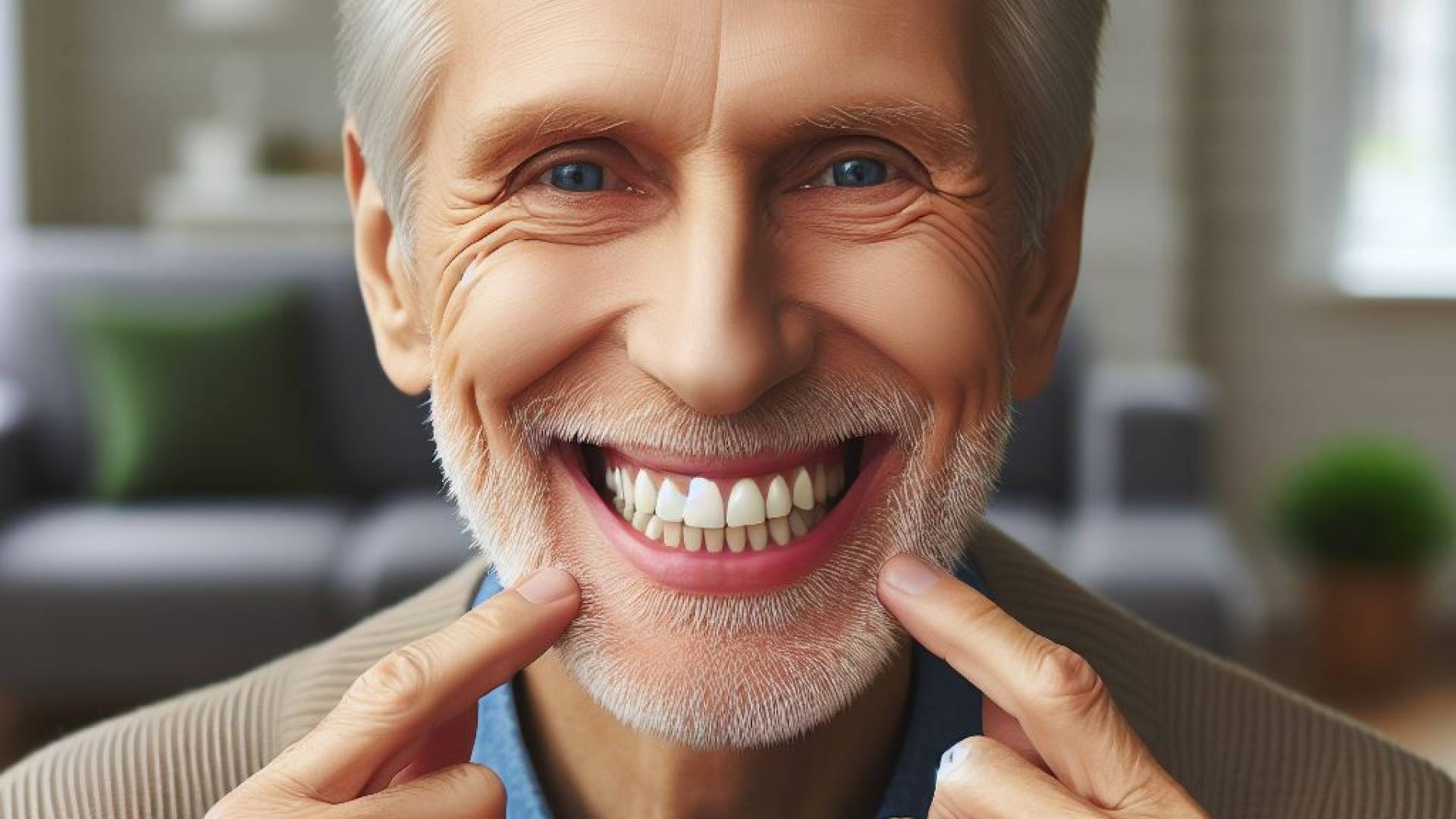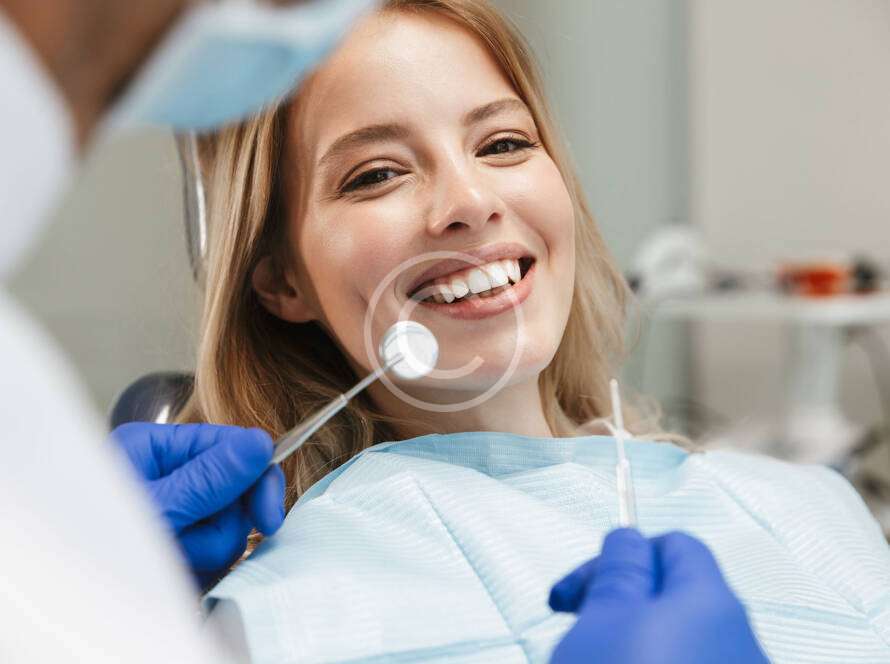Ensuring optimal oral health is crucial for the overall well-being of the elderly. This is a detailed guide that explores the delicate relationship between nutrition, ageing, and oral care, shedding light on the impact of inadequate nutrition on physical and mental degeneration.
Poor oral health, often exacerbated by disorders in the oral cavity, can lead to compromised eating habits. This article delves into the caloric requirements, changes in salivary glands, oral mucous membrane, teeth, and periodontal disease, offering insights into the unique challenges faced by seniors.

Understanding The Gum Health Of Elderly
Nutritional Implications for Ageing Oral Health
Adequate nutrition is foundational for the health and well-being of the elderly. Poor oral health can adversely affect nutritional status, leading to a myriad of issues. Loose or painful teeth, ill-fitting dentures, and disorders of the oral cavity contribute to reduced eating ability and desire. This compromised nutritional status further impacts the integrity of the oral cavity, emphasizing the need for a holistic approach that integrates diet and nutrition into the assessment and management of oral health in the elderly.
Aging and Changes in Salivary Glands
The aging process is often accompanied by changes in salivary gland function. While morphological alterations occur linearly with age, functional observations reveal that decreased salivary flow is not uniform among healthy individuals. Understanding the implications of these changes is crucial, as diminished salivary function can contribute to dry mouth, dental caries, and compromised oral health. Recognizing these age-related shifts enables tailored interventions and a more nuanced approach to oral care for the elderly.
Oral Mucous Membrane Changes and Their Impact
The oral mucosa plays a vital role in protecting against pathogens and maintaining overall health. With age, the oral mucosa undergoes changes such as thinning, reduced elasticity, and increased susceptibility to various conditions. These age-related alterations can expose the elderly to oral health challenges, emphasising the importance of regular oral health assessments and proactive management strategies.
Ageing and Morphological Changes in Teeth
Teeth undergo gradual changes with age, impacting their form, colour, and structure. From wear and attrition affecting tooth form to changes in enamel transparency and dentin quality, understanding these morphological shifts is essential. These age-related changes influence the outcomes of restorative treatments and necessitate tailored approaches in geriatric dentistry.
Periodontal Disease in the Elderly
Periodontal diseases exhibit an increased prevalence and severity with age, often reflecting an individual’s cumulative oral history. The length of exposure to dentogingival bacterial plaque plays a pivotal role in the enhanced severity of periodontal diseases. Recognizing the multifactorial nature of periodontal issues in the elderly allows for targeted preventive measures and more effective management strategies.
Prosthetic Considerations in Geriatric Dentistry
For a significant portion of the elderly population, edentulism is a reality. Factors such as debilitating diseases, neurophysiological changes, mental health, and reduced salivary secretion influence prosthetic considerations. Understanding these determinants is crucial for providing effective prosthetic treatment that aligns with the unique needs and challenges of elderly individuals.
Preventive Dental Care for the Elderly
The design and implementation of preventive dentistry protocols for the elderly pose unique challenges. Factors like illness, socio-demographics, service-related issues, and personal beliefs influence their utilisation of dental services. Addressing these factors is essential in promoting regular dental care, emphasising prevention, and altering the perception that tooth loss is an inevitable part of ageing.
How Does Pristine Smiles Provide Specialised Preventive Dentistry for the Elderly?

At Pristine Smiles Dental Clinic in Juhu, we understand the unique oral health challenges faced by the elderly. Our commitment extends beyond conventional dental care, as we specialise in pioneering preventive dentistry tailored to the specific needs of our elderly patients. In this comprehensive approach, we focus on mechanical plaque removal, rinses, denture care, adaptive aids, and counselling, ensuring optimal oral health for every individual.
1. Mechanical Plaque Removal
Recognizing the challenges faced by the elderly in maintaining effective plaque control, our clinic emphasises personalised strategies. From sulcular brushing methods to tailored brushing techniques for those with gingival recession, our team assists individuals in developing effective brushing habits. For those with physical limitations, we introduce traditional mechanical toothbrushes, rotary electric toothbrushes, or customised manual brushes to enhance their plaque removal efforts.
2. Therapeutic Rinses
Our preventive dentistry approach incorporates therapeutic rinses enriched with agents beneficial to oral health. Chlorhexidine rinses are recommended for gingivitis and effective against various plaque bacteria, particularly beneficial for those with physical and mental disabilities. Fluoride, in various forms such as gels, varnishes, rinses, or dentifrices, plays a pivotal role in preventing caries in older patients. Remineralizing rinses are also employed for individuals experiencing new coronal or root carious lesions due to severe xerostomia.
3. Denture Care
Understanding the misconception that oral health is no longer a concern post-extraction, our clinic educates elderly denture wearers on proper home care. Emphasising the removal of dentures at night, thorough cleaning, and massaging of tissues beneath the denture, we ensure the health of both the prosthesis and the oral tissues. Immersion cleansers are recommended to safely clean dentures without causing damage to the material.
4. Adaptive Aids
For those with weakened grips due to conditions like arthritis, we offer adaptive aids to facilitate effective plaque removal. Enlarged or built-up handles on manual toothbrushes, floss holders, and other home care aids are customised for each patient, ensuring ease and comfort during oral care routines.
5. Counselling and Education
Our preventive dentistry counselling involves two integral components: education and motivation. Through the “Tell—Show—Do” model, we educate patients on the causes of oral diseases, intervention methods, and preventive measures. Patient adherence is promoted through a therapeutic alliance, emphasising that oral disease is not an inevitable consequence of ageing. We work to dispel misconceptions, fostering a commitment to preventive measures for optimal oral health.
We Help You To Age Like A Fine Wine!
Pristine Smiles Dental Clinic, Juhu, goes beyond traditional dental care for the elderly. Our preventive dentistry practices are meticulously designed to address the specific needs and challenges faced by older individuals. By combining mechanical plaque removal, therapeutic rinses, denture care, adaptive aids, and counselling, we strive to ensure that every elderly patient enjoys optimal oral health, contributing to an enhanced quality of life.
FAQs
1. Why is gum health crucial for seniors?
– Gum health is crucial for seniors because it directly impacts overall well-being. Healthy gums contribute to better oral health, which is linked to systemic health benefits.
2. What are common gum problems that affect the elderly?
– Common gum problems in the elderly include gingivitis, periodontitis, and increased sensitivity. These issues can lead to more severe conditions if left untreated.
3. How does ageing impact gum health?
– Aging can result in reduced saliva production, diminished immune response, and increased vulnerability to gum diseases, making regular dental care essential.
4. What specialised treatments does Pristine Smiles Dental Clinic offer for senior citizens’ gum health?
– Pristin Dental Clinic provides tailored treatments such as mechanical plaque removal, therapeutic rinses, denture care, and adaptive aids to address specific gum health needs in seniors.
5. Can poor gum health in seniors lead to other health issues?
– Yes, poor gum health in seniors has been linked to various health issues, including cardiovascular diseases, diabetes, and respiratory infections.
6. What preventive measures can seniors take to maintain good gum health?
– Seniors should practise regular oral hygiene, maintain a balanced diet, attend routine dental check-ups, and promptly address any signs of gum problems.
7. How often should seniors have dental check-ups for their gum health?
– Seniors should schedule dental check-ups at least twice a year or as recommended by their dentist to monitor and address any changes in their gum health.
8. Are there specific dietary recommendations for seniors to support gum health?
– Seniors should consume a diet rich in fruits, vegetables, and calcium while limiting sugary and acidic foods to promote gum health.
9. How does Pristine Smiles Dental Clinic tailor its approach to meet the unique needs of elderly patients?
– Pristine Smiles Dental Clinic adopts a personalised approach, considering factors like physical limitations, medications, and overall health to provide effective and comfortable dental care for seniors.
10. What role does oral hygiene play in overall well-being for seniors?
– Maintaining good oral hygiene is crucial for seniors as it not only preserves teeth and gums but also contributes to improved overall health and quality of life.

